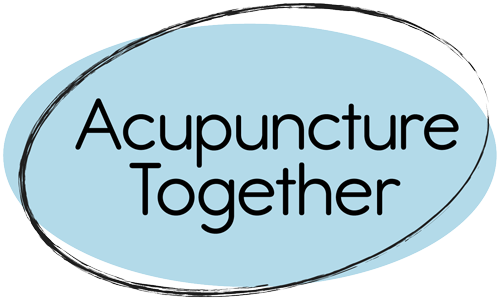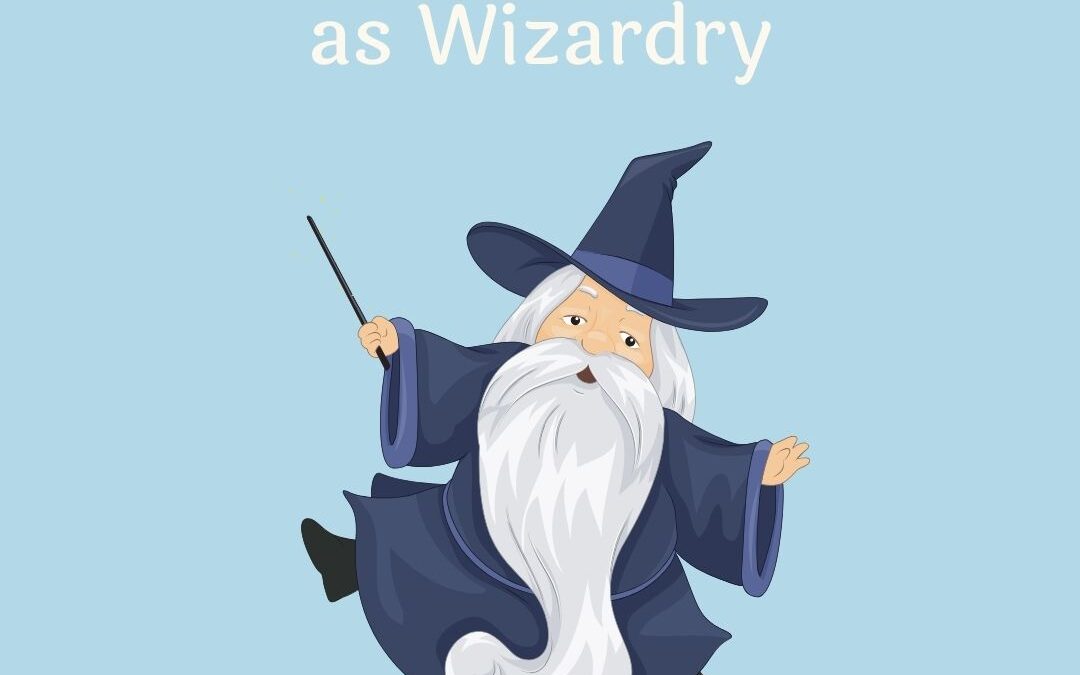I was scrolling through my Facebook feed a few days ago when I ran across a post in a local group where someone was asking for a recommendation for an acupuncturist to treat TMJ. I wrote a comment saying that I am an acupuncturist at Acupuncture Together and that acupuncture is great for TMJ and would definitely recommend trying it (regardless of who they see).
I moved on with my day, and when I checked back on Facebook the following day, I found a notification leading me back to that post. Another person, whom we’ll call SK, made the following comment about acupuncture: “Any success would be the placebo effect. Magic isn’t real, You can’t manipulate magic “chi” with tiny magic wands because magic isn’t real. They should at least wear wizarding cloaks if they’re going to make-believe they perform magic.”
Now, I hardly expect every person in the world to believe in acupuncture. Plenty of people think it’s quackery, or just a placebo, or at the very minimum are skeptical, which is totally normal. And I don’t typically get into it with strangers on the internet; I mostly ignore controversies. But this comment really rubbed me the wrong way. First of all, it’s rude. Second, it’s false. And finally, instead of SK minding their business and scrolling by, SK decided that, although they have little factual knowledge about acupuncture, they would try and convince the original poster, who is in pain and in need of help, not to try acupuncture because it is not scienfically acceptable in SK’s opinion. In addition, because I am an acupuncturist, I felt I ought to say something to debunk SK’s comment about acupuncture being wizardry.
So, instead of ignoring the conversation, I decided to chime in. First, I included a link to Evidence Based Acupuncture, specifically the summary on acupuncture for pain. I don’t think SK bothered to read that website (as I will get to in a bit), but there are some VERY valuable findings about acupuncture for pain here (I include quotes below. On the website these include links to the original meta analysis studies.).
“For acute pain, a systematic review of 13 trials found that acupuncture was more effective than both sham needling and injection with painkillers...
For chronic pain, in the largest study of its kind to date, 454,920 patients were treated with acupuncture for headache, low back pain, and/or osteoarthritis in an open pragmatic trial. Effectiveness was rated as marked or moderate in 76% of cases by the 8,727 treating physicians…
In a 2-year retroactive survey of over 89,000 patients published in 2016, 93% of patients said that their acupuncturist had been successful in treating their musculoskeletal pain…
A meta-analysis of 17,922 patients from randomized trials concluded, “Acupuncture is effective for the treatment of chronic pain and is therefore a reasonable referral option. Significant differences between true and sham acupuncture indicate that acupuncture is more than a placebo.””
Damn, that’s pretty impressive, isn’t it?!
SK did not respond to that website to acknowledge its validity. I added, “There is actually science behind how acupuncture works. Also, acupuncture works on animals – it’s widely used on horses and dogs, for example – sometimes more exotic animals like sea turtles. No placebo effect on animals, they have no beliefs about acupuncture.”
SK replied, “Justine Myers, no, seriously, you have it wrong. It is based on a magic force called “chi” or “qi.” Google it. It’s also in the name of a lot of the wizard schools and shops. You’ll find countless web pages discussing the magic, even a page from the Mayo clinic “Traditional Chinese medicine explains acupuncture as a technique for balancing the flow of energy or life force — known as chi or qi (chee) — believed to flow through pathways (meridians) in your body.””
SK missed the part about me being an acupuncturist, and was trying to school me on why acupuncture is phoney baloney! Oops!
I decided not to get into it further with SK, especially in regards to qi. SK seemed to have their mind made up, and seemed to be willfully ignorant about taking the time to read and consider, or even possibly accept, scientific facts about acupuncture.
Yes, qi (pronounced “chi” or “chee”) is a fundamental part of Traditional Chinese Medical theory. Acupuncturists learn acupuncture based on this idea of qi, translated as energy or life force, as well as ideas of yin and yang, which are opposing forces in the body and in the universe. Chinese medicine is a complete system that makes sense in its own way, and the language and ideas it is based on (qi/yin/yang and more) developed over 2000 years ago when this system and theory of medicine was revolutionary and shown to work based on empirical evidence (that is, through observation of patterns that were repeatedly replicated). The methods we use to scientifically evluate acupuncture today were not available at that time. In its own context, acupuncture works, even when acupuncturists are thinking about working with qi when treating patients.

